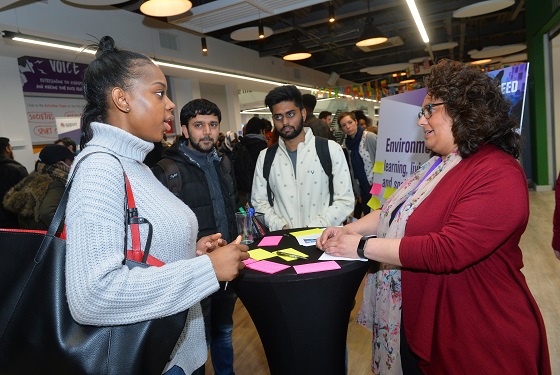The research and evaluation undertaken as part of the Decolonising DMU project is informed by a critical race-grounded methodology. This allows for the exploration of data – without the influence of a hypothesis – to develop a theory with explanatory power rather than mere description.
The guiding principle behind grounded theory is the notion that theory is emergent, rather than predefined, and through a critical race-theory lens, the approach helps to illuminate the experiences of those who are marginalised (Cohen et al., 2011; Malagon et al., 2009).
The Research Work Stream has four primary areas of work:
Project Evaluation
The core evaluation focuses on monitoring the impact of our project work across the main four work streams (Institution, Library, Staff and Students). This primarily involves exploring changes in policy, processes, practices and perceptions of staff and students.
Overarching Research about decolonising the University
Alongside the evaluation, we will be investigating how the people in our university community experience the decolonisation process. This will help us to develop our understanding of what it means to embark upon a decolonising journey in a higher education institution and what effect it has on our staff and students.
Decolonising research structures, cultures and practices
We are working with DMU’s Research Services, its Institutes and Centres, Faculty Research Ethics’ Committees and Faculty Heads of Research Students, to understand the rerlationship between research and the decolonising agenda. One outcome of this is a DRAFT self-auditing guide for Research Centres and Institutes – applying a decolonising lens.

Freedom to Achieve
The evaluation strand of the project sought to identify how Kingston University’s Value-Added Metric and Inclusive Curriculum Framework were integrated into existing work at DMU, and what impact this had on the attainment gap. In parallel to this work, we conducted a number of student consultations in order to learn more about student experience across our 40 pilot programmes.
To guide student and staff discussions about the attainment gap at these consultations, the team reviewed the literature and devised four themes upon which to focus:
- Curriculum
- Environment
- Community and Belonging
- Development
The findings of this work are shared on our Publications page.
You must be logged in to post a comment.